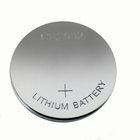
Jupiterimages/Comstock/Getty Images
Canned salmon provides vitamins, minerals and heart-healthy omega-3 fatty acids and can be a healthy addition to your diet. However, salmon may contain levels of mercury and other harmful toxins, and a plastic and resin ingredient used to line metal cans may also contains possible toxins. Research continues on the potential adverse effects, and food manufacturers are beginning to offer canned products in cans not made with the chemical bisphenol A.
Heavy Metals
Salmon and other fish may contain potentially harmful heavy metals, such as mercury, dioxins and polychlorinated biphenyls, or PCBs, according to the University of Maryland Medical Center. Salmon, sardines, tilapia, freshwater trout, mullet and herring are among the fish with the lowest concentrations of mercury, according to the Global Healing Center, a website for natural health information. However, a 2008 study published in "Environmental Toxicology and Chemistry" found that although mercury levels in salmon fall below human health consumption guidelines, wild salmon contains three times as much mercury as farmed salmon. Mackerel, swordfish and tilefish contain higher levels of mercury, and pregnant or nursing women and young children should avoid these types of fish. Pregnant or nursing women are advised to eat no more than 6 ounces of fish per week and children under age 2 less than 2 ounces a week, according to the U.S. Environmental Protection Agency.
BPA Exposure
Bisphenol A, or BPA, has been used in food can linings for years. Revelations of possible health risks have led to restrictions on BPA in Canada, some U.S. states and some U.S. cities. Consumer Reports tested canned soups, juice, tuna, green beans and other foods and found that 19 name-brand canned foods contain BPA. It reports that some products labeled “BPA-free” contained some BPA. Federal guidelines allow safe exposure at 50 micrograms of BPA per kilogram of body weight. But the measure was based on older studies, according to Consumer Reports. New animal studies found abnormal reproductive development at exposures of 2.4 micrograms of BPA per kilogram of body weight per day.
Possible Damage
Laboratory tests of the toxin suggest possible damage may include birth defects of the male and female reproductive systems because of commonly eaten canned goods, according to the Environmental Working Group, which includes scientists, engineers and policy advocates, who analyze studies and also perform their own tests. Other potential health hazards from BPA include breast cancer, prostate cancer and infertility, according to the group.
Health Benefits
Because BPA is used for a variety of canned foods and safety standards have not yet changed, it is up to consumers to limit or reduce exposure to the toxin. They can buy canned salmon and other canned products from reputable manufacturers that offer a BPA-free option, Traditional Foods notes. Products free from BPA should indicate that option on the can label. Canned salmon holds valuable health benefits. The omega-3 fatty acids in canned salmon boost heart health by improving cholesterol levels in your body. Omega-3s may work to combat heart disease and depression.
Reduced Risk in Salmon
Canned salmon does not carry as much risk as canned tuna, according to Paul Greenberg in an August 2011 issue of "The Atlantic." The tuna used for canning feed on other fish or crustaceans further down the food chain, taking in mercury and other metal toxins, which accumulate through the food chain levels. The salmon commonly used for canning feed on small crustaceans and tiny plankton, which contain none of those toxins, Greenberg states.
Related Articles
What Kind of Cans Are Used for Canned ...

Can You Eat Sockeye Salmon Raw?

How to Can Salmon Fish

Dimethicone Hazards

Dangers of Spray on Tan

What Foods Provide Calcium D-Glucarate?

Types of Batteries Used in Watches

Is Grocery Store Fish Safe for Sushi?
How Long Can You Keep Canned Salmon?

Food Sources of Phosphatidylcholine

Is it Healthier to Cook Salmon With Its ...

Foods Containing Copper Peptides

Is Orange Roughy Safe to Eat?

What Are the Dangers of Anti-Aging ...

Strontium-Rich Foods

The Disadvantages of Vermicompost

What Are the Benefits of Extrapone ...

Metal Detox & Acne

How to Cook With Philly Cream Cheese & ...

A List of Foods That Contain Choline
References
Writer Bio
Jerry Shaw writes for Spice Marketing and LinkBlaze Marketing. His articles have appeared in Gannett and American Media Inc. publications. He is the author of "The Complete Guide to Trust and Estate Management" from Atlantic Publishing.
Photo Credits
Jupiterimages/Comstock/Getty Images